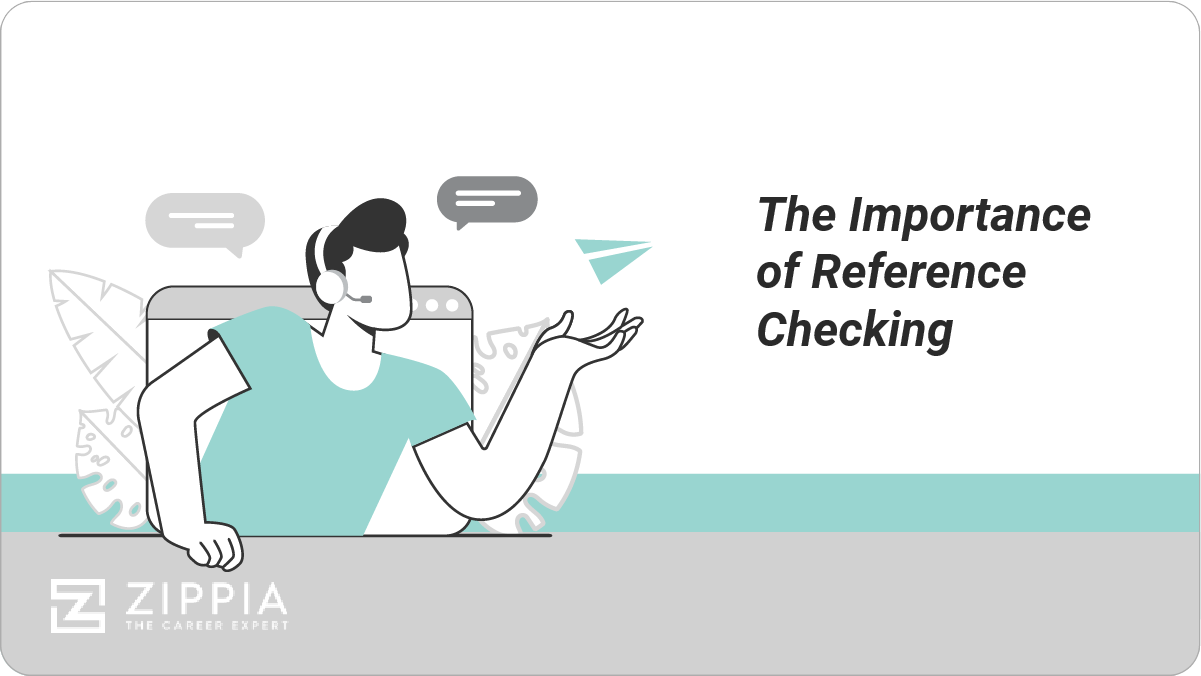Conducting reference checks is an absolutely vital part of any recruitment process. And no matter how amazing a candidate may be on paper, and regardless of how impressive they may have been when you interviewed them, no recruiter should ever let the reference-checking process slip through the cracks.
Key Takeaways:
-
Reference checks help employers gather an outside perspective about a job candidate.
-
Obtain references from a candidate either during the application process or after the interview.
-
You should conduct at least 2 reference checks, preferably from people who can speak openly about the candidate’s relevant skills.
-
Ask the reference questions related to the roles and responsibilities of the position.
-
Watch out for fake or unhelpful references.

What Is A Reference Check?
A reference check is the process of contacting people affiliated with a job candidate to gather more information. Generally, these are previous supervisors or coworkers, someone who can speak openly about the candidate’s professional experience.
Former professors, teachers, mentors, and others can also be references to speak on the candidate’s educational or personal background.
A reference check is not the same as a background check. A background check usually entails reviewing the criminal and financial history of the job candidate. A reference check meanwhile allows you to talk to others who know the job candidate to give you a better idea of their personality, skills, and strengths.
How To Conduct A Reference Check
The steps to conducting a reference check are:
-
Obtain reference contact information. You can either have a candidate provide references during the application process or after the interview. Your choice depends on what you think works best for your hiring process.
-
Call the reference. Call the reference during normal business hours. If they do not pick up, leave a voicemail explaining who you are and ask to be called back at the reference’s convenience.
-
Introduce yourself. It is important that you introduce yourself and give the reference context to your call. The reference should be prepared to speak to you if the candidate has already informed them about being a reference.
-
Verify the candidate’s name and relation to reference. Before you get into your questions, you first want to confirm who the reference is and that they know the candidate.
-
Ask questions. Ask questions important to the position. These questions should be related to skills and traits you find relevant.
-
Listen without interrupting. Make sure to give the reference time to speak. Do not put pressure or bias them with your own thoughts. Sit back and let the information come to you.
-
Thank reference for their time. Once you are finished, be polite and thank the reference before ending your call.
Conducting a reference check is pretty straightforward. However, you do not want to underestimate the process. Referencing checking is very important and when it’s done improperly, it can cause more issues down the line.
Why Do A Reference Check?
Reference checking allows us to obtain independent information about our candidates’ previous on-the-job performance.
The information we gather during a reference check is directly related to the key selection criteria of the role they have applied for and allows us to validate the information provided by the candidate at the interview.
Referencing also allows us to identify ‘grey areas’ from the candidate’s resume or from their interview such as the reasons they may have left a past position.
It’s frightening to think of the number of recruiters who will actually rely on the feedback gained from a 2-minute phone conversation; or who might make a placement without even carrying out any reference checks at all.
They’re usually pretty badly burnt within the guarantee period since it doesn’t take long for the client to realize the candidate isn’t quite as experienced as they had first assumed.
When Do A Reference Check?
Before you make an offer to a candidate, you should really carry out at least two verbal reference checks. It’s the perfect way for you to understand how your candidate really performs on the job (the good and maybe even the not so good) before your client finds out … perhaps the hard way. But don’t conduct the references too early in the recruitment process.
Questions To Ask A Reference
Connect the questions you ask your reference to information specific to the role and responsibilities of the position.
If during your interview you asked the candidate questions around communication, decision-making and time management, you should then ask the referee (ideally the candidate’s former boss) exactly the same questions. “When did Nicole ever have to “sell” an idea to a co-worker? How did she do it?” “Can you give me an example of a time when Alex had to be quick in coming to a decision. What obstacles did he face? What did he do?”
The questions you ask should prompt the candidate’s former supervisor to talk about the candidate’s actual past experiences and behavior – ideally in more than just a 2-minute quick call.
The responses to these questions will certainly tell you more than whether your candidate was nice to work with, was usually punctual, had minimal sick days or whether she was proficient in Excel. But don’t put words in their mouth.
Try to avoid manipulating the conversation to go in your favor. So steer clear of comments like: “What you’re saying is that Bill interacts well within a team, right?” “We’re looking for someone with outstanding customer service skills. Chloe was part of your customer support team, wasn’t she?” Oh … and if a referee is gushing with praise and can’t fault your candidate in any way at all, that should ring alarm bells too. Even the greatest employees can improve in one or two areas. How does that saying go? “If something seems too good to be true, it probably is”.
The one question you might also want to consider asking at the very end of every conversation with a referee is something along the lines of “So would you ever re-employ [insert name here]?”
This should be the only hypothetical question in the entire discussion. But the answer to this question can speak volumes. After all, there is a huge difference between “Um … I guess so”, “Yes … yes I would”, and “Hell yeah! I’d have her back in a heart beat”.
Reference Check Tips
When conducting a reference check, consider the following best practices:
-
Specify the type of references you want. Don’t leave it up to the candidate to assume the types of references you want. If you are looking to speak with a former supervisor or coworker, make it clear that you need professional references. Otherwise you may end up speaking to a former teacher or family member.
-
Prepare questions ahead of time. Know what type of information you want to get out of the conversation and write it out so that you are not left with coming up with questions on the spot. This helps you avoid wasting time and asking irrelevant questions.
-
Provide the reference with a job description. Either verbally, or in an email, briefly go over the role and responsibilities of the candidate’s position. This gives the candidate better context to answer your questions.
-
Take notes. Much like preparing questions ahead of time, take notes of what the reference says to use afterwards as you think more about the candidate. Don’t trust yourself to remember every detail later.
-
Give yourself enough time. You don’t want to take up the reference’s day with your questions, however, you also don’t want to rush this process. Make sure you spend enough time with the reference so that you feel like you learned more about the candidate.
Reference Check Risks And Red-flags
Reference checks are not perfect and come with their own issues. However, if you are prepared, you will be more than capable of handling the risks and red-flags of referencing checking.
Some risks and red-flags of reference checking include:
-
Fake references. If you reach out to a reference and learn that the reference either doesn’t know the candidate or is pretending to be someone they’re not on the candidate’s behalf, then you can be sure that your candidate has failed a very important test.
-
Unhelpful references. Some references will only confirm for you objective facts. Others will be too glowing or unrealistic about the candidate. Make sure to steer the conversation to something more natural, open, and honest.
-
Inconsistencies. If one reference says one thing about a candidate, and another says the opposite, then you are left playing detective. You have to wonder if it is the fault of the reference or the candidate.
Mitigate risks and red-flags of reference checking by preparing as much as possible. Get your references from your candidate and speak to them as soon as possible. This will give you time to make adjustments if you find you have been given poor references.





